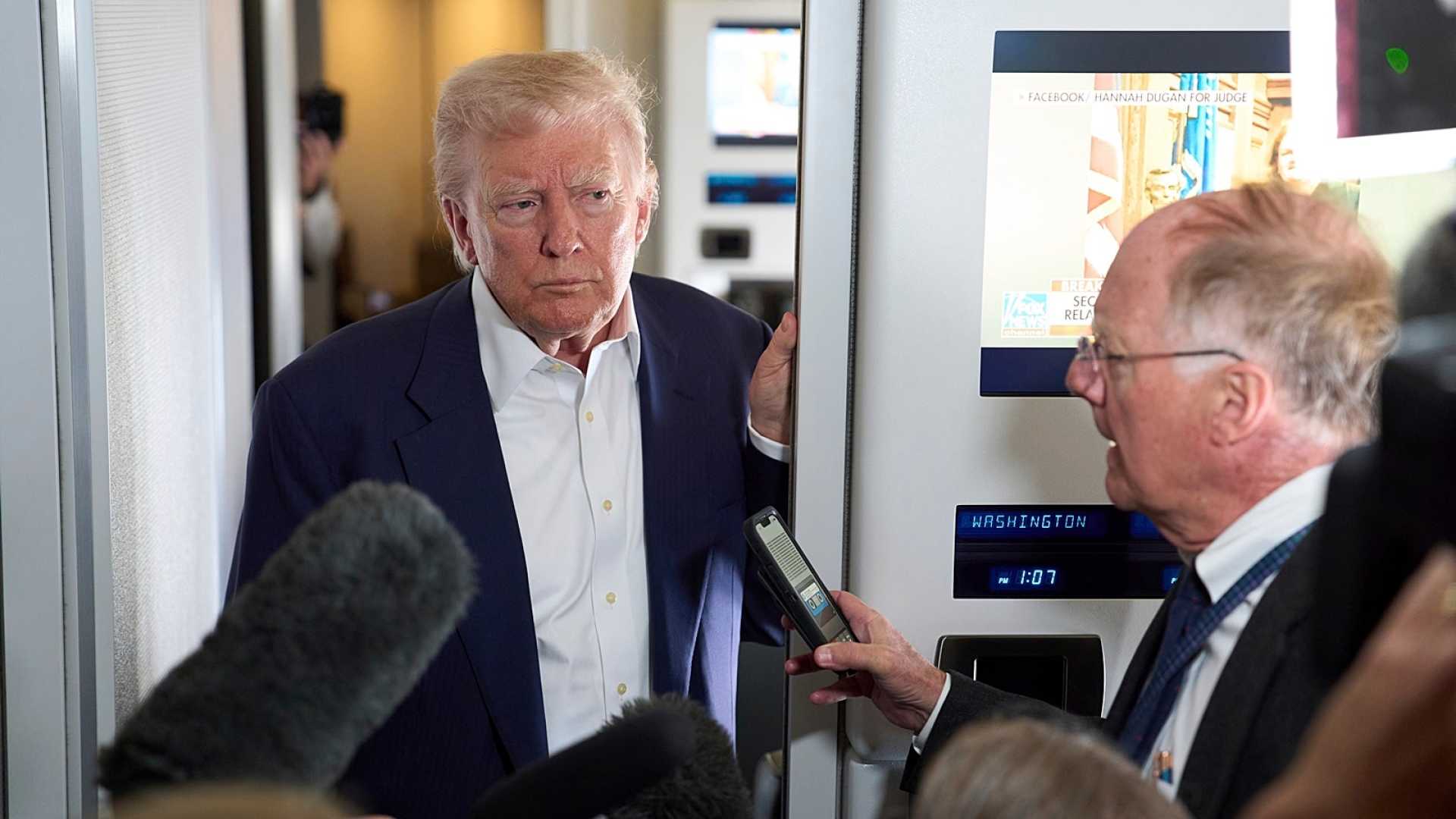Politics
Trump Calls for India-Pakistan Resolution Amid Rising Tensions

WASHINGTON, D.C. (AP) — U.S. President Donald Trump stated on April 25, 2025, that India and Pakistan will resolve their issues independently, amidst rising tensions following a deadly attack in the Kashmir region. Speaking aboard Air Force One, Trump acknowledged the long-standing historical conflicts between the two nations, noting that they have been at odds for over 1,500 years. He expressed confidence that the two countries would find a way to manage their relationship, despite the current crisis.
“They’ll get it figured out one way or the other. There’s great tension between Pakistan and India, but there always has been,” Trump remarked. His comments come in the wake of an attack on April 22, where 26 individuals were killed at a tourist site in Pahalgam, marking one of the worst incidents in nearly two decades. The attack, which predominantly targeted tourists, has exacerbated existing tensions in the region.
Reports indicate that the attack was carried out by terrorists associated with the Resistance Front (TRF), a group linked to the banned Pakistan-based organization Lashkar-e-Taiba (LeT). This incident has drawn strong reactions from both countries, with India alleging the involvement of Pakistani elements, a claim that Islamabad has firmly denied.
In response to the escalating situation, India has suspended critical agreements, including the Indus Waters Treaty, which governs water sharing between the two nations. This decision reflects the deteriorating diplomatic relations following the attack, which has prompted Pakistan to close its airspace to Indian airlines.
During the press briefing, Trump was asked whether he would reach out to Indian Prime Minister Narendra Modi or Pakistani Prime Minister Shehbaz Sharif, but he did not commit to any direct communication. Instead, he reiterated his close ties to both nations, stating, “I am very close to India and I’m very close to Pakistan, as you know.” He acknowledged the historical context of their conflict, saying, “They’ve had that fight for 1,000 years in Kashmir… probably longer than that.”
The U.S. State Department has also commented on the situation, with spokesperson Tammy Bruce emphasizing that the U.S. is closely monitoring developments but is not taking a position on the status of Kashmir or Jammu. She described the situation as “rapidly changing,” urging both nations to exercise restraint.
Furthermore, United Nations Secretary-General Antonio Guterres has called for maximum restraint from both India and Pakistan. His spokesman, Stephane Dujarric, stated that the UN is following the situation closely and appealing for peaceful resolution through meaningful engagement. Dujarric specifically addressed the suspension of the Indus Waters Treaty, stressing the importance of avoiding actions that could escalate tensions further.
The situation in Kashmir has been fraught with violence and political strife for decades, with both India and Pakistan claiming the territory. The two nations have engaged in multiple wars over the region, and the recent attack has reignited fears of further conflict. The historical backdrop of this dispute adds layers of complexity to the current crisis.
As the international community watches closely, the hope remains that both countries can navigate this challenging moment without further escalation. The ongoing dialogue and diplomatic efforts will be crucial in determining the future of India-Pakistan relations.












